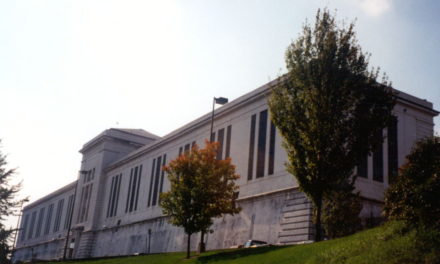Under the state’s Right to Know law, the subject matter of a public official’s post could deem it a public record.
The state Supreme Court in Pennsylvania recently heard a case involving that judges may consider a variety of factors when determining whether a public official’s social media post is a public record under the Right to Know Law. The court said the defining factor is whether the post involves public business.
Last Tuesday, the court’s ruling was made in an appeal by a man from Crawford County, Pennsylvania who sought Facebook posts by two Penncrest School Board members that voiced criticism about a display of LGBTQ+ books outside of a high school library.
Upholding a 2023 Commonwealth Court decision, the justices voted to send the case back to Crawford County Court in a vote of 4 to 3.
The Supreme Court also rejected a “new test” proposed by the Commonwealth Court aimed at determining whether social media posts are considered public records.
The proposed test instructed the county court to examine whether the social media accounts were public or private, whether the posts “prove, support, or evidence a transaction or activity of an agency,” and whether the posts constitute “actions of public officials in their official capacity.”
“Along these lines, we agree with the Commonwealth Court that in this case, the trial court was required, but failed, to consider a host of different factors when assessing the Facebook posts documented a transaction or activity “of an agency,” wrote Justice Sallie Updyke Mundy.
“Today, we reaffirm that this two-part inquiry is the only test to be utilized when determining whether disclosure of information, regardless of its form, is required under the statute,” she continued.
In 2023, Penncrest School District passed controversial policies on library materials that led to a ban on LGBTQ+ books. Transgender girls were also banned from competing on girls’ sports teams.
The Commonwealth Court’s opinion said that in May of 2021, a parent in the Penncrest School district posted a photo of a Pride Month book display online. School board member David Valesky and Board President Luigi DeFrancesco reposted the photo on their Facebook pages.
Valesky added the comment, “This is on display at Maplewood High School. Besides the point of being total evil, this is not what we need to be teaching kids. They aren’t at school to be brainwashed into thinking homosexuality is okay. Its [sic] actually being promoted to the point where it’s even ‘cool.’”
Thomas Cagle made a Right to Know request for the board members’ Facebook posts. The request was denied by the school district.
The Office of Open Records and a Crawford County judge ruled in Cagle’s favor, directing the school district to comply with his request for posts and comments “related to homosexuality and Penncrest School District, its officials, employees, or students, or its curriculum, physical [resources], or electronic resources.”
Cagle sought an appeal in the Supreme Court, which was granted. He argued the Commonwealth Court’s proposed test treated social media differently than other information that is subject to the Right to Know Law.
The school district made the argument that what was said in the social media posts was not as important as “where it was said,” comparing them to discussing board policy with friends at a barbecue.






